The Movie Mezzanine Filmmaker Retrospective series takes on an entire body of work–be it director’s, screenwriter’s, or otherwise–and analyzes each portion of the filmography. By the final post of a retrospective, there will be a better understanding of the filmmaker in question, the central themes that connect his/her works, and what they each represent within the larger context of his/her career. This time, we delve into the strange world of David Lynch’s mind, attempting to make sense of things along the way.
Also worth mentioning: while it should go without saying that the Retrospective pieces are usually laden with spoilers for the film in discussion, because this week’s film is so embedded with the show that shares its name, I will be spoiling a lot of plot points for the television series as well. Reader discretion is advised.
–
Let’s talk about Twin Peaks.
I mentioned in my previous entry of The David Lynch Retrospective that 1990 was Lynch’s most successful year, as it was the year that both the Palme d’Or-winning Wild At Heart and Twin Peaks debuted. And yet, I don’t think I properly stated just how big of a phenomenon Twin Peaks actually was. Originally aired on ABC, the show was both a hit with the ratings and with the critics, nationally and internationally. It followed Special Agent Dale Cooper visiting the strange Pacific-Northwestern logging town of Twin Peaks to investigate the murder of a young girl named Laura Palmer, dealing with quirky locals and mysterious visions along the way. The question “Who killed Laura Palmer?” was embedded in the cultural consciousness, audiences fell in love with Kyle MacLachlan’s coffee and cherry pie-obsessed Cooper and many of the titular town’s strange citizens, and it offered an atmosphere, structure, style, setting, and story that no other television show had or attempted.
Looking back, it’s kind of amazing that a show as strange and, well, Lynchian as Twin Peaks ever became a hit at all. After all, the second episode featured Dale Cooper having a dream in which he was transformed into an old man in a room full of red curtains, talking with the then-deceased Laura Palmer and a midget that talked both backwards and forwards at once (it’s hard to explain) and danced to the beat of strobe lights. But as strange as Twin Peaks was, much like Blue Velvet, it still had an easy-to-follow storyline that balanced out the quirky characters and instances of surrealism.
But as the show progressed into its rather long second (and final) season, ratings began to dip as frustrated audiences just wanted to know who killed Laura Palmer and what the hell was going on in this crazy town already. This got the producers to force Lynch and the rest of the writers into revealing Laura Palmer’s murderer early, and even then, there was so much left to explore. And as the show moved more and more toward the fantastical, mainstream viewers grew weary of Lynch’s brand of surrealism, bringing a substantial decrease in ratings.
Most other showrunners would respond to that kind of audience by toning down on the surrealism to bring the viewers back. But Lynch was not like most showrunners, and indeed, is not like most human beings in general. The season finale brought even more questions than answers, and is one of the most batshit insane episodes of television you are likely to ever watch. Agent Dale Cooper delves headfirst into the Black Lodge, the curtain-laden, zigzag-carpeted room where demons manifest themselves, and is chased all around by an endless series of surreal monstrosities and obstacles as spatial geometry reconfigures itself in a manner that causes Coop to travel in circles that lead to different versions of the same room, before finally confronting the demon BOB (who possessed Laura Palmer’s father Leland into murdering her) head-to-head.
After that, the final moments of Twin Peaks showed Dale Cooper waking back up in the real world, only for the audience to discover that Cooper himself has lost the battle, and now BOB has possessed him as well. The show ends with Coop banging his head against the mirror to see BOB’s reflection instead of his own, right before it fades to black. Lynch and the producers hoped that this cliffhanger would bait audiences into wanting to know what would happen next, thus demanding a third season. But the ratings and audience consensus said otherwise, and the show was canceled in 1991.
And yet, even when it was very clearly done for, it was also intensely clear that Lynch wasn’t done with Twin Peaks. Literally one month after cancellation, Lynch announced that he wanted to do a film that would serve as the proper sendoff for the mysterious Washington town, with many of the actors reprising their roles (save for a few exceptions).
And how was Lynch to give Twin Peaks the conclusion it deserved? Well, Lynch always thinking outside the box, it was actually rather simple. Instead of a conclusion, he decided to go back to the very beginning: Who killed Laura Palmer. The result was a film that chronicled the final days of Laura’s life, and the tragic, fateful demise that would end up spearheading the events of the series. But more than that, it is also Lynch’s most misunderstood, most unfairly maligned film in his entire career.
With all that said, let’s journey into the Black Lodge for Twin Peaks: Fire Walk With Me.
“When this kind of fire starts, it is very hard to put out. The tender boughs of innocence burn first, and the wind rises, and then all goodness is in jeopardy.”
Twin Peaks was ostensibly a serialized expansion of the themes found in Blue Velvet: Small-town American life hiding dark secrets within a seedier underbelly, characters living double lives, and corruption growing in the most seemingly innocent of places. What the show’s cinematic counterpart does to differentiate itself from the source material is tighten its focus. Whereas Twin Peaks showcased the cultural subconscious of the entire town by displaying multiple characters heading deeper down the rabbit hole as a result of Laura’s death, Fire Walk With Me narrows its spotlight to the root of that sociological psychosis by delving deeply into the psychosis of one family that ended up starting it all.
Twin Peaks: Fire Walk With Me is a rare bird: A prequel to a franchise that, in many ways, manages to alienate most of its intended audience (i.e. fans of the show) by explicitly avoiding fan-service at every possible turn. At the same time, what makes it so alienating is that burrows its way into the show’s dark themes in a way that’s deeply uncomfortable, exceptionally bizarre, and rather terrifying. In spite of the murder that hung throughout the show, Twin Peaks was mostly light-hearted, and Fire Walk With Me is anything but. This is one of Lynch’s darkest, most disturbing films precisely because it is able to delve into the places that the show simply wasn’t allowed to explore on national television.
The film further alienates fans of the show by opening with two FBI agents that aren’t Special Agent Dale Cooper investigating the murder case of a young girl that isn’t Laura Palmer in a town that’s not Twin Peaks. Still, the murder is remarkably similar to that of Laura’s, the town they go to is rife with strange, quirky characters, and Cooper does get dragged back into the scene when both FBI agents disappear without a trace during the investigation. Nothing is solved, and since we already know what happens after these events, we know that this killer will strike again in the titular logging community. Right off the bat, Lynch is telling us that those looking to this movie strictly for easy answers to the show’s most glaring mysteries are going to be left empty-handed. The only mystery Lynch is interested in is one that is more universal: How does this evil spread deep inside innocence?
After thirty minutes, we finally find ourselves in Twin Peaks, with Laura Palmer on her way to school and reintroducing us to some of the show’s standout characters: The up-to-no-good jock Bobby, the brooding motorcycle-rider James, her best friend Donna (who was recast for the film since Lara Flynn Boyle declined to return), and many others. But immediately after that, the fan-service ends and Lynch reveals his true colors. Rather than indulging the fanbase with yet another journey with our favorite characters, Twin Peaks: Fire Walk With Me lays waste to the familiar tone of the show, demolishing the veneer of quirkiness in order to submerge itself entirely in the darkness that has always served as an undercurrent in the show, but is a potent, oppressive threat here.
As soon as Laura goes back home, she finds pages of her diary missing: another sign that BOB is both very real and very obsessed with Laura Palmer. She goes to Harold to keep her diary (a plot point that comes back in Season 2) and explains to him (and by extension, the audience) that BOB wants to “become” Laura, and if she refuses, he’ll flat-out kill her out of spite and petty revenge. The icing on the cake: BOB already has a firm grasp on her father Leland (played, as always, to perfection by Ray Wise) and will use him as an instrument of his wrath.
Similar to how the show delved into the seedier side of modern American small-towns, Fire Walk With Me becomes a disturbing portrait of the darkness that surfaces in modern American families. BOB’s usage of Leland to carry out his own ends leads to the psychological, verbal, and (most disturbingly) even sexual abuse of Laura. This causes Laura herself to almost give in to this same corruption of her own innocence, as evidenced in the scenes in which she begins to prostitute herself in defiance of her increasingly insane father and the demonic influence that’s lurking within both him and herself.
What’s all the more tragic about Laura’s psychological downward spiral is that she’s well aware of it and refuses to act against it. She’s largely given up, believes she’s beyond saving, and has pretty much already accepted her fate. When asked by Donna what falling in space feels like, she responds with the troubling answer, “Faster and faster… until after a while you wouldn’t feel anything… and then your body would just burst into fire. And the angel’s wouldn’t help you, ’cause they’ve all gone away…”
And yet, while she knows that her purity has long been destroyed by BOB and her father, she still manages to find value in the remnants of it she has left. Most notably, when Donna comes with her to the seedy nightclub where Laura prostitutes herself and begins to follow in her footsteps, Laura suddenly bursts in overprotective fright to rescue Donna from that same kind of corruption. “I don’t want you to be like me,” she tells her. For all the bleakness of Twin Peaks: Fire Walk With Me‘s inevitable conclusion looming over every event leading up to it, Laura still holds out hope that innocence can still flourish and survive in other places, other families, and other people. The film’s final moments also manage to be hopeful in the face of this corruption, as Laura is being embraced by Dale Cooper, the two of them sharing a space in the Black Lodge, and are now being watched over by an angel, as they’re both now free from their corrupted state of being.
With the film’s ever-present themes of innocence and corruption, it’s easy to interpret Twin Peaks: Fire Walk With Me as some sort of twisted coming-of-age tale. But coming-of-age entails a loss of innocence that is necessary for growth, and the evil that overtakes Leland, Laura, and Cooper is something that Lynch depicts in a near-Satanic light. Innocence is not “lost” in Fire Walk With Me. Innocence is violated, dragged to a dark alley, and shot in the head twice for good measure.
The climactic scene in which we finally bear witness to Laura Palmer’s death in the hands of BOB/Leland Palmer lives up to its lofty expectations, and is one of the most harrowing and downright terrifying scenes Lynch has ever put to film. And what makes it so terrifying is that the fantastical demons have been rendered real. BOB is no longer just some boogeyman lurking in the woods (as depicted in the show), but instead a manifestation of harbored feelings that lurk deep within such innocent places as a small, quiet American town, or a small, quiet American family. Feelings that lead to very real problems like sexual abuse, underage prostitution, and finally murder. Terrifying as the demons of the Black Lodge may be, they do not compare to the demons of the human psyche manifesting themselves into reality.
And what’s more, all corruption spreads, and in many ways, Laura’s death was the catalyst that brought the rest of Twin Peaks ever closer to crazy-town. If one person is capable of evil deeds, than surely a whole town is. And if a whole town, than an entire country. And if an entire country, than surely all of us are capable of such evil.
But still, almost all of Lynch’s films tend to end with a hopeful daze, whether it be genuine or fleeting, and in Fire Walk With Me, it is anything but fleeting. As I stated in my previous entry on Blue Velvet, almost all of Lynch’s films end with some sort of loving embrace, and Fire Walk With Me is no different. Though Laura’s innocence has been burnt to ash, she can now say that the fire hurts her no longer.
Perhaps that’s ultimately what the title really means. We’re all given up to the Fire some time in our lives, so escaping from it is ultimately futile. All we could do is not mind the pain, and walk with that fire in our hearts. We can’t extinguish it, but tame it we can try. Because through the darkness of future past, we can chant between two worlds: “Fire walk with me.”
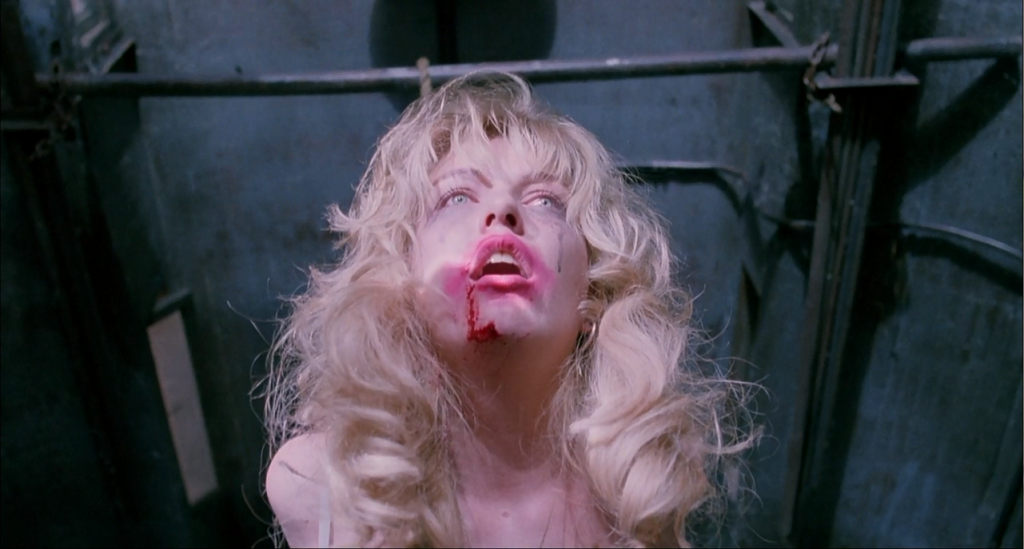
A film that deliberately toyed and tore apart the iconography of the cult-classic television show that most people loved was sure to receive negative reactions from audiences. But it was the critical response that proved to be the death null for Twin Peaks: Fire Walk With Me, as it was greeted not only to poor reviews, but also a choir of boos during its screening at the Cannes Film Festival in 1992. Quentin Tarantino even said himself, “After I saw Twin Peaks: Fire Walk with Me at Cannes, David Lynch had disappeared so far up his own ass that I have no desire to see another David Lynch movie until I hear something different. And you know, I loved him. I loved him.” To go from winning the Palme d’Or to being booed in the very same festival two years later is troubling to say the least.
Yet I still believe that Twin Peaks: Fire Walk With Me is a truly great film in spite of the naysayers. It may not be his “masterpiece” (though I’d rank it in my top 5), but it may be the most subversive film in his entire career, and it’s certainly among one of his scariest.
But what I find most noteworthy about both the final episode of the show and Fire Walk With Me was that it signaled a transition in Lynch’s style of storytelling. Since The Elephant Man, Lynch has been telling traditionally told, mostly linear stories in his feature films, even with his stranger works like Blue Velvet and Wild At Heart. But with Twin Peaks: Fire Walk With Me, he was moving closer to the 100% surreal, non-linear mindscrew territory that put him on the map when he first made Eraserhead. And after that, he only moves further into it.
Stay tuned next week, as we take a drive down the Lost Highway.
Previous Editions:
Previous Movie Mezzanine Filmmaker Retrospectives:

















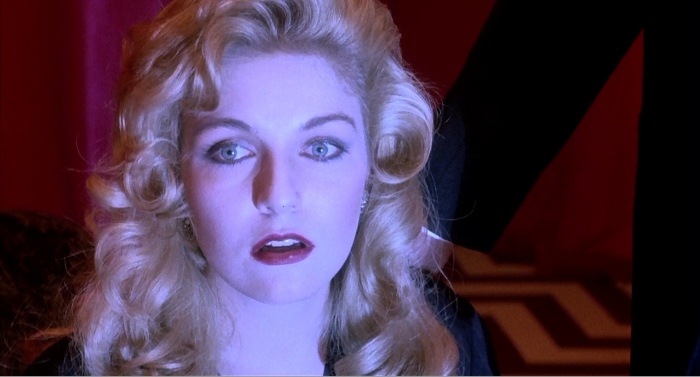
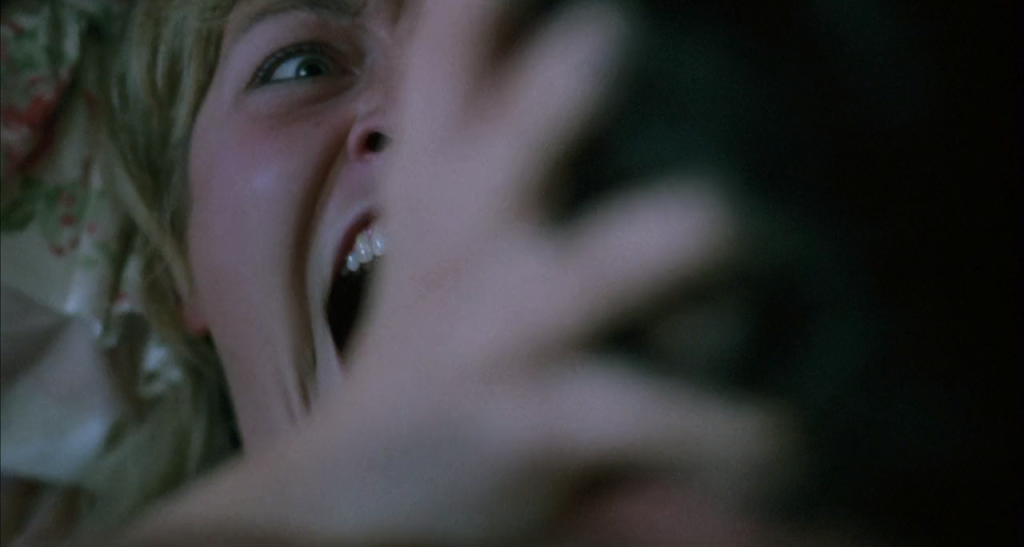
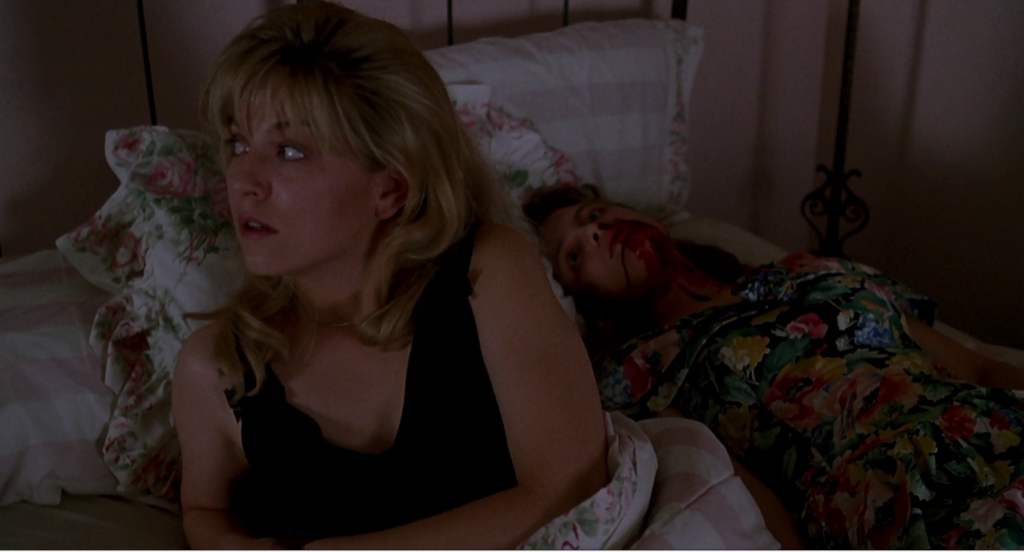
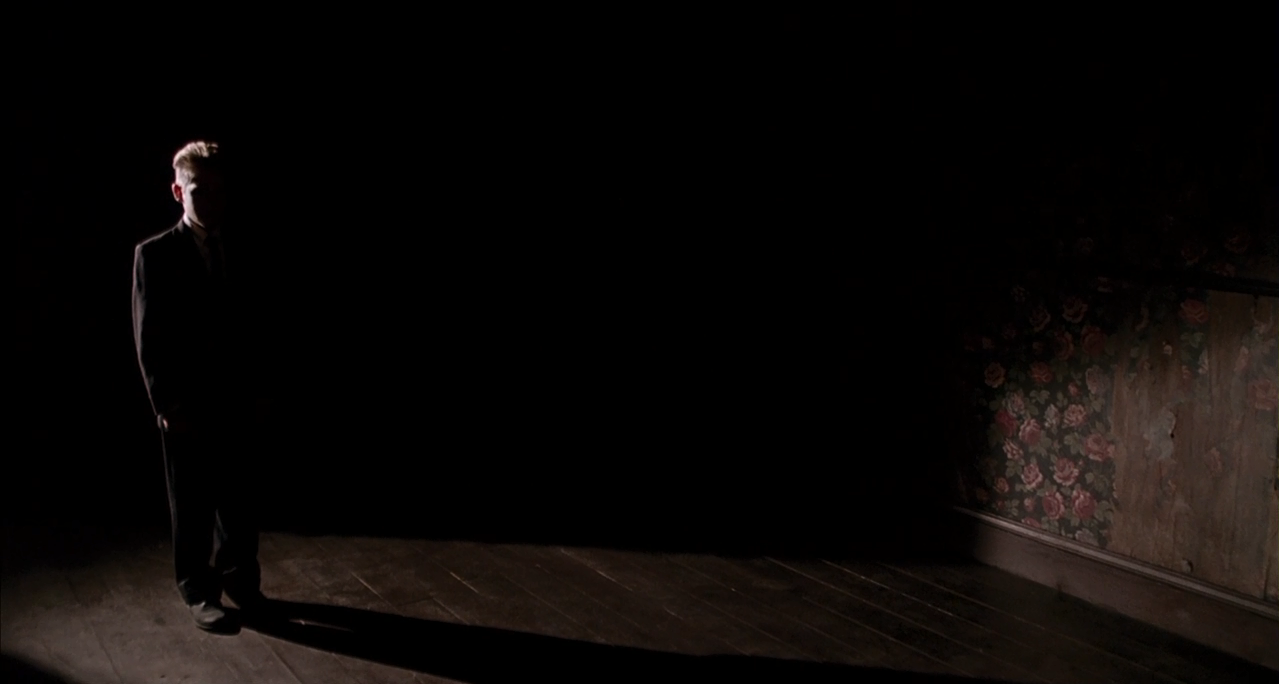
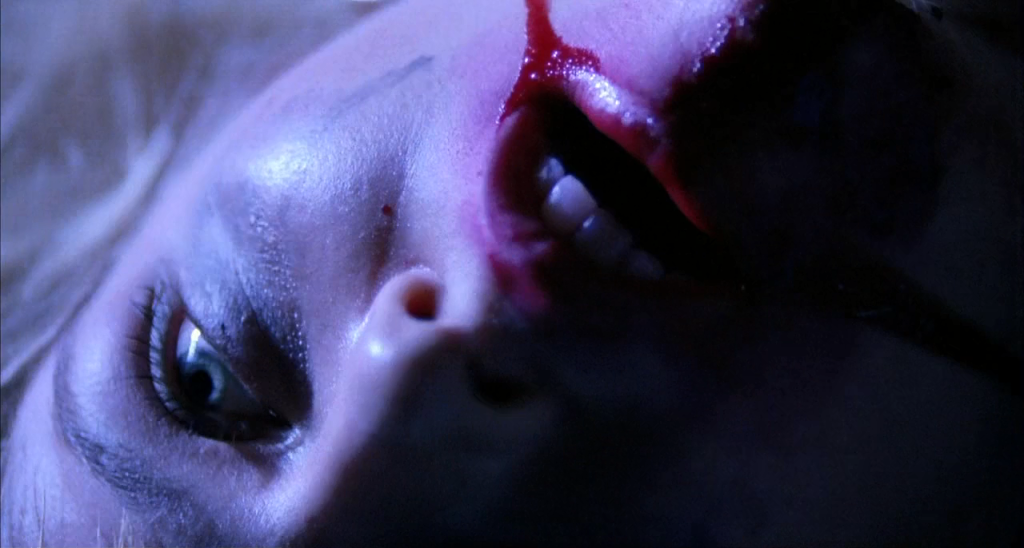
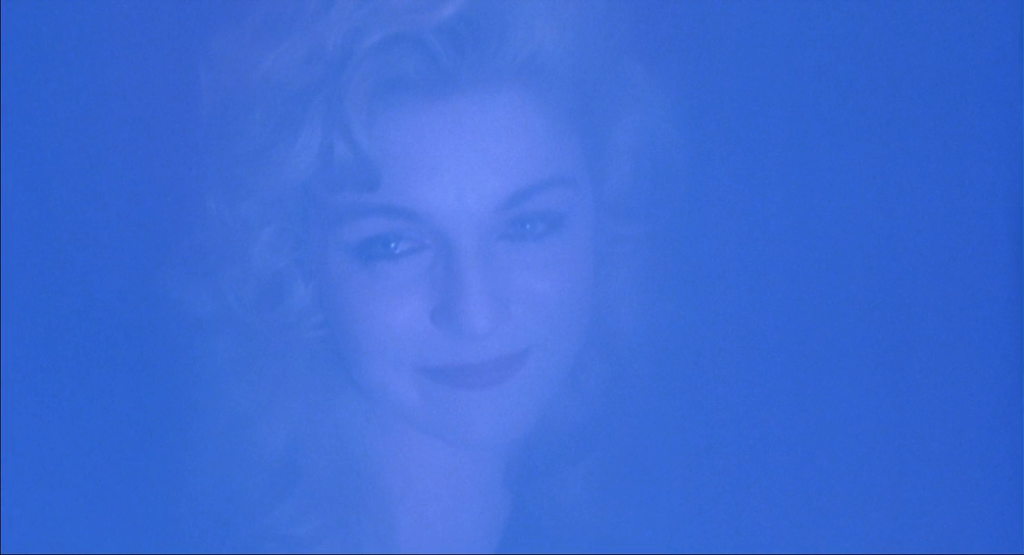
9 thoughts on “The David Lynch Retrospective: ‘Twin Peaks: Fire Walk With Me’”
I really agree with your assessment of “Fire Walk With Me.” It’s not my favorite of Lynch’s, but I do think it’s incredibly underrated. It’s stuck in a weird place because you pretty much need to have seen the show to enjoy it, but the film also subverts those same fans of the show by giving no fan service. I hope as time goes by people will reassess the film like you did here and give it the recognition it deserves.
What is your interpretation of David Bowie’s role?
It’s so short that I simply don’t have any opinion on it. If I had to guess, it was probably an expanded role that had to be cut out due to production time, costs, budget, editing problems, or whatever. Especially when you consider that Cooper’s storyline in general had to be reduced because MacLachlan was reluctant to reprise his role, that seems like the most likely option. But again, I don’t know for sure, and it is ultimately meaningless in comparison to the big picture, which is Laura’s story.
Great retrospective! I’m going through Lynch’s oeuvre as well, and I watched this for the first time tonight, after viewing the entirety of Twin Peaks of course, and it is a beautiful and truly underrated film. Lynch continues to impress me. I’m curious, what are your Top 10 favorite films? I know it’s a random and kind of personal question, but I saw in your Malick Retrospective that both Days of Heaven and The Tree of Life were on it, and I was wondering what the full list was.
Pingback: Twin Peaks – Fire Walk with Me Reviews · WWW.INFOWEBHUB.NET
Pingback: Twin Peaks – Fire Walk With Me | INFOBLOGHUB.COM
Quentin Tarantino said that? Of course he would have been still riding the fresh coat tails of Pulp Fiction then.
Disappeared up his own ass? Erm, I think there’s another word for that. It’s called Django Unchained
As for Tarantino disappearing up his own ass, Grindhouse is the best example. DU, on the other hand, is one of the most entertaining, rewatchable films I’ve seen in recent years. It captures the spirit of the Spaghetti Western perfectly.
Maybe is because i watched it (the show and the movie) in 2014, and i know about Lynch movies and about his movies’s usually mixed reception. But i really liked the movie as a prequel of the series. In fact, the last chapter of the series is pretty dark, and the movie is pretty much the continuation of that feeling.
About Bowie’s appearance. I thought (what i never think about a D.Lynch’s movie), that this was like “oh lets do something weird with a weird character played by the weird David Bowie, even if it has nothing to do with anything” maybe for quirky loving fans. I still think that in that movie is just like that, even though it was a pretty intense moment (like something was going out of control). But in the uncut version, there is much more about David Bowie’s character and his relation with the ring (we could say the movie follows the ring’s adventure). I think by watching this full version, many things that appear to be weird (just for weird sake), have a better development and (in a way) explanation.